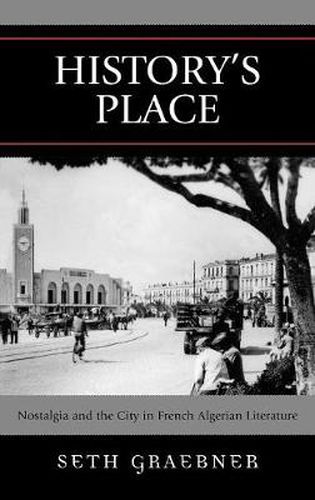Readings Newsletter
Become a Readings Member to make your shopping experience even easier.
Sign in or sign up for free!
You’re not far away from qualifying for FREE standard shipping within Australia
You’ve qualified for FREE standard shipping within Australia
The cart is loading…






History’s Place explores nostalgia as one of the defining aspects of the relationship between France and North Africa. Dr. Seth Graebner argues that France’s most important colony developed a historical consciousness through literature, and that post-colonial writers revised it while retaining its dominant effect. The North African city became a privileged place in the relationship between literacy and historical discourses in the colony. Graebner analyzes the importance of architecture and urbanism as markers of historical development, as the urban fabric and descriptions of it became signs of difference between metropole and colony. Discussing writers as diverse as Bertrand, Randau, and Kateb, this book examines how the changing Algerian city has remained the locus of a debate colored by various sorts of nostalgia. Graebner demonstrates that nostalgia was symptomatic of historical anxiety generated by colonial conditions, but with literary consequences for mainland France as well. History’s Place is a comprehensive and valuable addition to the study of French literature and cultural studies.
$9.00 standard shipping within Australia
FREE standard shipping within Australia for orders over $100.00
Express & International shipping calculated at checkout
History’s Place explores nostalgia as one of the defining aspects of the relationship between France and North Africa. Dr. Seth Graebner argues that France’s most important colony developed a historical consciousness through literature, and that post-colonial writers revised it while retaining its dominant effect. The North African city became a privileged place in the relationship between literacy and historical discourses in the colony. Graebner analyzes the importance of architecture and urbanism as markers of historical development, as the urban fabric and descriptions of it became signs of difference between metropole and colony. Discussing writers as diverse as Bertrand, Randau, and Kateb, this book examines how the changing Algerian city has remained the locus of a debate colored by various sorts of nostalgia. Graebner demonstrates that nostalgia was symptomatic of historical anxiety generated by colonial conditions, but with literary consequences for mainland France as well. History’s Place is a comprehensive and valuable addition to the study of French literature and cultural studies.